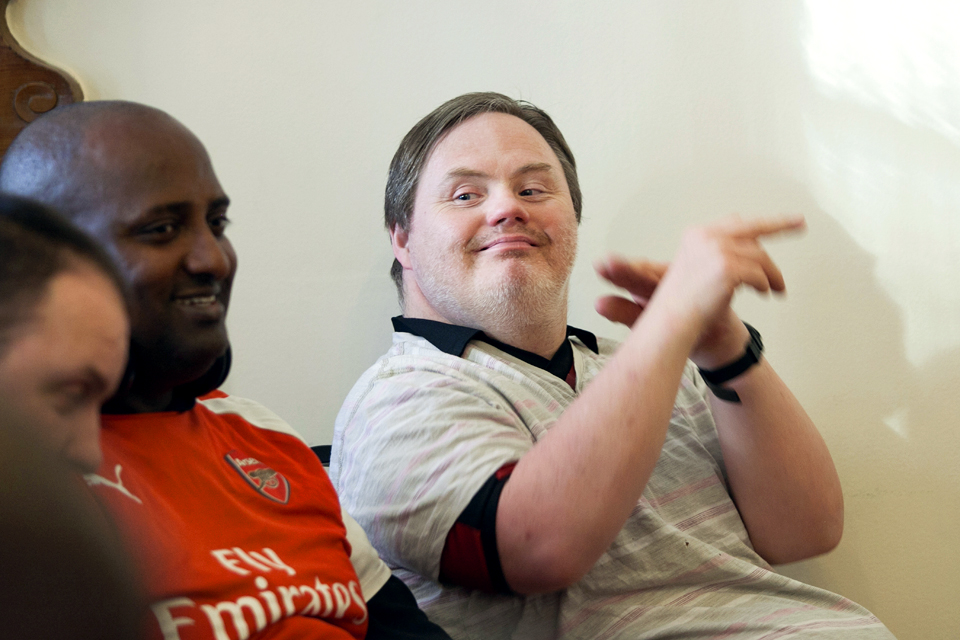Museum blog: Diversity matters
Friday 26 April 2019
Opening up access to music is one of the most important challenges faced by musical institutions today. Everybody, whatever their background or level of need, deserves the opportunity to engage with the arts and their rich heritage. When it comes to people with additional needs, there can be practical difficulties or perceptual barriers that keep music lovers from entering concert halls, museums and practice rooms, despite their passion and desire to engage. But why? And what can be done?
The Royal College of Music Museum has long welcomed a wide range of visitors to exhibitions, special viewings, small concerts and workshops, but physical restrictions within our previous museum space meant we were unable to make our collections and activities fully accessible. Looking to the future, thanks to National Lottery Heritage Funding we are redeveloping our spaces to be fully accessible as part of the More Music Campaign and are working hard to ensure we provide even better experiences when our museum building re-opens in 2020.
In August 2018, we were delighted to be one of four museums awarded a grant by London Museum Development at Museum of London. The project we proposed, Music in the Museum: Relaxed Concerts, had a simple, clear goal: consult local people with additional needs and co-create a model for a successful relaxed concert.
[image1]
Relaxed concerts are becoming increasingly popular and can be seen as an opportunity to experiment with format and relaxed attitudes towards noise and movement. Here at the RCM they are part of a wider initiative to open up access to our buildings, programmes and music in general, championed by the College’s learning and participation programme, RCM Sparks. We aspire to enable everyone to access our inspirational collections and heritage stories, and hope that hosting relaxed concerts (specifically designed to welcome people with autism spectrum disorders, sensory and communication impairments and learning disabilities) will encourage these audiences to feel at home in the museum.
For this project we chose to partner with Equal People Mencap, a resource centre for people with learning disabilities based in North Kensington. Working together, we explored creative ways to consult with visitors in an effective and inclusive manner. Through consultation we wanted to understand the challenges faced by those with additional needs from their own perspectives, and to find out what this audience wants to hear and do as part of an event. We heard about people’s experiences of live music and about barriers they encountered when visiting physical spaces similar to the Royal College of Music.
[gallery]
We then staged a pilot concert, choosing ‘the animal kingdom’ as our theme and programmed a range of music, including The Carnival of the Animals and Disney favourites. Our visitors were able to engage directly with objects from the RCM collections during the performance; a Chinese snakeskin tambourine, an African animal horn and tiny pigeon whistles, accompanied by stories of their history and use. Our research revealed that choosing a welcoming space is extremely important too. We made sure the ground-floor concert venue had an adjacent ‘chill-out space’ for anyone who might have found the concert experience overwhelming.
To our delight, the concert was fully subscribed. Participants smiled, chatted, conducted and generally behaved freely throughout. In the final piece, people got up and danced! Our formal evaluation revealed that attendees enjoyed the music, felt welcomed and supported, and wanted to visit the RCM again.
We also involved RCM students in the project, assisting with consultation and welcome as well as delivering the relaxed concert. Involving students is important to us. We want to equip young musicians with the skills necessary to help the industry evolve in positive directions by providing high quality training and experiences. Our student team was given disability awareness training, which included learning some Makaton sign language as a way to make communication more inclusive during the concert performance. Pianist Ana Bursac said afterwards, ‘I found discussing practical scenarios in the training so useful and learning some Makaton means I can now incorporate this into my future concerts’. We also trained student Welcome Assistants to make the arrival experience less intimidating and to provide friendly faces throughout the event.
[image2]
We are thrilled to have been part of the London Museum Development’s highly supportive programme, which encourages museums to embrace Arts Culture England’s Case for Diversity, supporting institutions in their quest to engage a broader range of visitors with their collections.
Our evaluation of how we might run relaxed concerts as a more formal offering has been a great catalyst for discussion within the RCM. As an institution, we are looking at ways we can continue to increase access and opportunities for disabled audiences and include them in the wider life of the College. We are excited to see how our collections and new museum spaces can play a part in welcoming and engaging the widest audience possible.
Lydia Baldwin
Museum Learning & Participation Officer
[image3]








